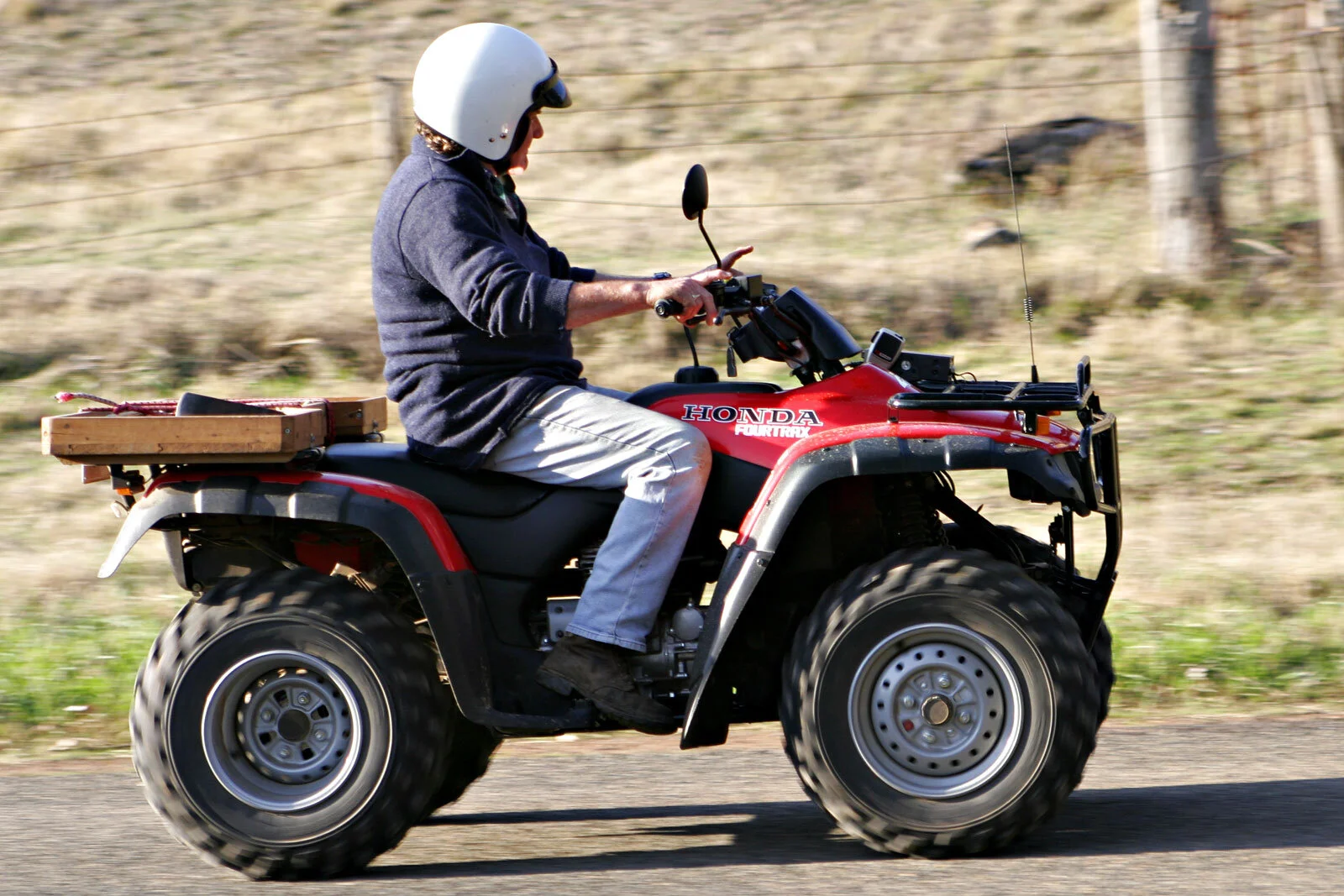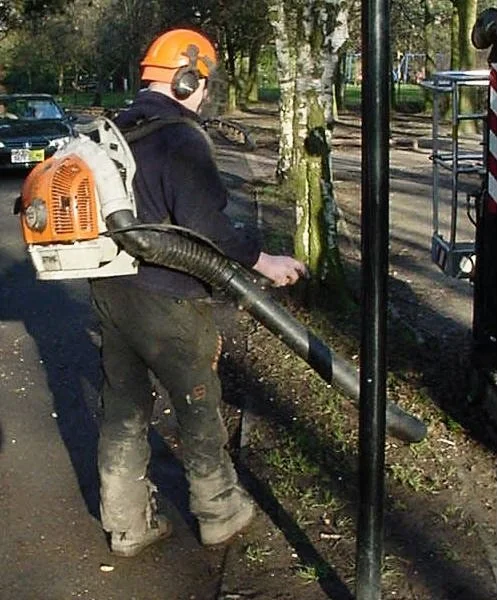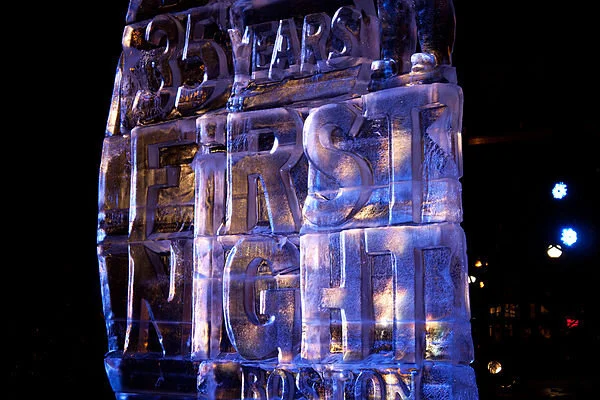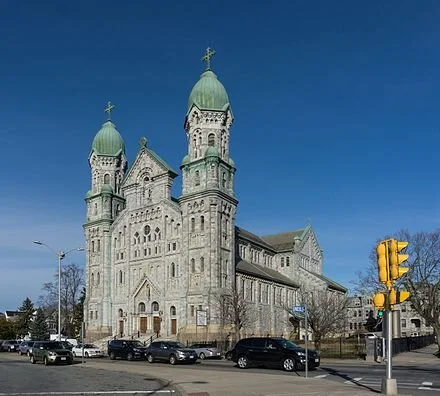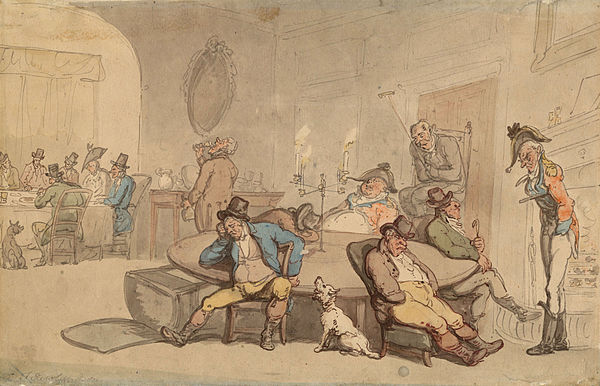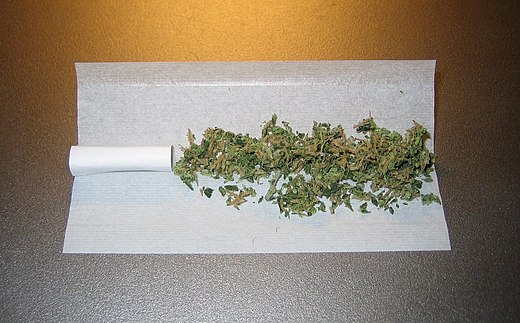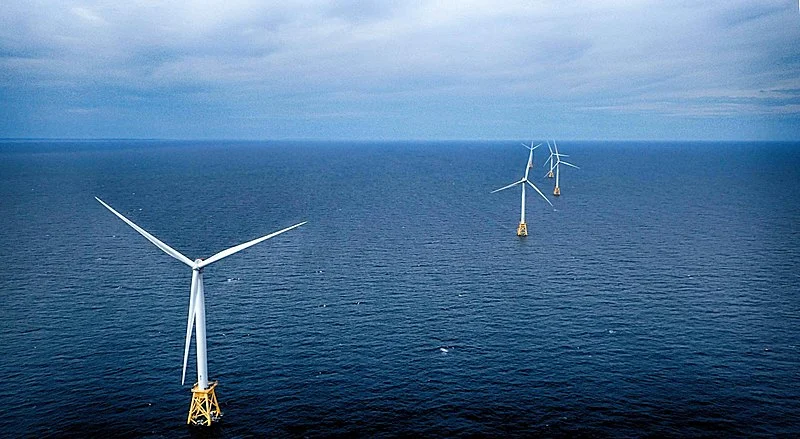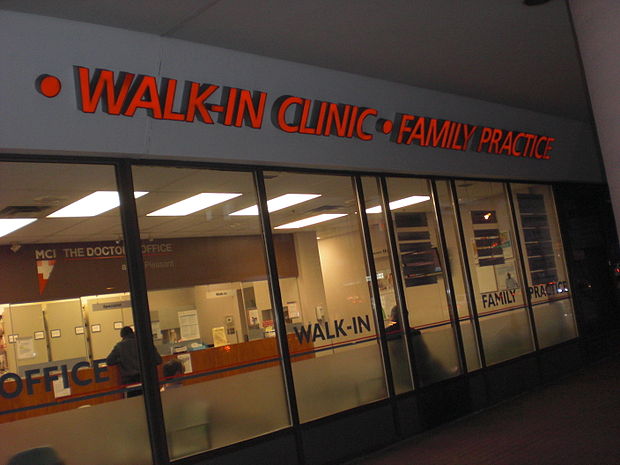
Infernal machines
— Photo by fir0002 fl
From Robert Whitcomb’s “Digital Diary,” in GoLocal24.com
A Providence mayoral candidate could get a lot of votes with credible promises for the city to crack down hard on ATV and dirt-bike users. They must be made very scared to ride in the city. The State of Rhode Island, through the State Police and new laws, must also bring much more force to bear against these potentially lethal and out-of-control offenders. Arrest, immediate jail, conviction and a memorable stay in the ACI.
And a candidate could also gain more than a few votes by supporting a ban on gasoline-fueled, shrieking and polluting leaf blowers. It used to be that these infernal devices were mostly confined to blowing fallen leaves into piles to be trucked away in mid and late autumn. Now they’re used year-round to (often pointlessly) blast dust and other debris around, turning the surrounding neighborhoods into dead zones while they work.
Affluent property owners employ yard crews of hard-working illegal aliens (too few of whom are wearing ear protection) to wield these things; I’ve noticed that many of the owners often arrange to be away at their summer or weekend houses when the crews show up.
And now what?
A First Night ice sculpture in Boston
From Robert Whitcomb’s “Digital Diary,’’ in GoLocal24.com
On and about New Year’s Day we talk about time more than usual – past, present and future. But what is the present since we’re always moving through time?
So what have we learned, or relearned, in this crummy year? Well, on the list might be:
That there are far too many variables in heaven and earth to confidently make predictions about big stuff. You can only try to mitigate your vulnerability to an infinite number of risks. And most of us have big failures of imagination -- e.g., the possibility that a bunch of terrorists could fly airlines into skyscrapers and that we’d have the biggest pandemic since 1918 -- and so we don’t adequately prepare for many disasters that are inevitable but whose timing can’t be known.
(I’m waiting for a really big earthquake hereabouts.)
That in-person communication is almost always better than via a screen.
That many of us have learned to appreciate more than we had certain small pleasures that we had too often ignored before, such as walking outside on a mild, sunny morning.
That, generally, sitting in restaurants with your friends is better than getting takeout.
That global warming and its effects are moving along at a faster pace than expected.
That our ability to pollute the earth grows ever wider – consider that microplastics have been found in the placentas of babies, with unknown health risks – and that thrown-away face masks are making a mess on land and in the water.
That reading a book – especially a good, solid hardcover one -- can be much more satisfying than watching TV.
That investing in dry-cleaning stores is unwise.
That having lots of locally based shops and eateries within walking distance of where you live is a gift and that it’s worth supporting them as much as possible.
That sidewalks should be widened so that more of our social and commercial life can take place outdoors.
That America needs more trades people – plumbers, electricians, roofers, carpenters, etc. – and the apprentice programs and vocational schools to train them -- than it needs more college graduates. Indeed, bring back “shop’’ classes in the public schools. Our COVID house arrests have reminded millions of how many things need fixing in our homes and how few people are available to fix them.
That, as we’ve seen in who shows up on TV as victims in the COVID crisis, there are far too many single-family households, led only by the mother. America needs a revival of marriage and of holding fathers economically and otherwise responsible for the children they help create.
That so many Americans own big expensive cars, especially SUVs -- even poor people lining up in their cars for food pantry stuff.
That tens of millions of Americans will devoutly follow a sociopathic/psychotic demagogue, whatever the easily ascertainable extent of his lies and viciousness, suggests that the future of the American democratic experiment may be in deep peril.
That science’s ability to save us is vast (consider the super-fast invention of COVID-19 vaccines!) even as science applied by evil people can threaten us.
xxx
Let’s hope for a grand reopening by June, anti-vaxxers permitting.
And maybe the best New Year’s resolution is to decide to tolerate who we have become and to look at the roads that brought us here more clinically than emotionally.
xxx
I have a pile of old magazines – Life, Look, etc. -- from the ‘50s and ‘60s that I like to browse from time to time. It’s a bit of an education in cultural change, both the ads – lots of them are for cigarettes and gasoline and now bizarre- looking health products – and the often stilted language of the articles.
Too bad that most print magazines have died. People 50 years from now would enjoy seeing in a physical format what Americans in 2020 were like.
Remembering the sweet pollution of yesteryear
From Robert Whitcomb’s “Digital Diary,’’ in GoLocal24.com
I suppose fewer folks than usual will be driving around New England looking at foliage this fall because of states’ COVID restrictions, which among other things, make it more difficult to get rooms in hotels or inns and and tables in restaurants. Many have closed for good. Too bad, those lurid leaves are our region’s greatest natural show, except for maybe a big bad blizzard or heavy-duty hurricane, and bright foliage can last for several weeks, not a few hours, unlike a big storm.
Oh well, our terrible drought means that the colors won’t be as bright this year anyway….
Northern New England has the greatest foliage festival. I particularly remember from back in the ‘60s, when I lived up there, the spectacular shows on Route 100, which goes up through the middle of Vermont, and the Kancamagus Highway, in the White Mountains.
By the dreaded Election Day, on Nov. 3 this year, leaves will cover the ground, which reminds me of the sweet smoke that used to fill the air from burning the leaves we’d rake into big piles. The yearly smoke produced a feeling of mellowness and nostalgia. Now such outdoor burning is generally banned because of the serious air pollution it causes. (I remember, too, the air pollution from wood stoves during the energy crises of the ‘70s.) Now, too many people, or the people they hire (including very hard-working illegal aliens), use also polluting (emissions and shrieking noise) leaf blowers, not rakes, to collect the leaves. An improvement?
The disappearance of leaf-burning reminds me of the exit of other unhealthy but pleasant activities, such as smoking a cigarette after a meal and one or two cocktails before dinner. These habits tended to shorten lives, and so it’s good they have faded. But I’ve seen no explosion in general happiness as a result.
If you do go leaf-peeping, watch out for slippery fallen leaves if we finally get some rain, as well as rutting deer and moose.
The small private college apocalypse
The dining hall and Mather building at Marlboro College, in Marlboro, Vt. It has closed and is merging with Emerson College, in Boston.
Emily Dickinson Hall, at Hampshire College, in Amherst, Mass. The nationally known college has been on the endangered list but has been been revisioning and restructuring itself. This building, designed by the architecture firm of former faculty member Norton Juster and named for the famous 19th Century poet who lived in Amherst, houses much of the college’s humanities operations.
Adapted from Robert Whitcomb’s “Digital Diary,’’ in GoLocal24.com
Many small private colleges, like much of retail, are now facing apocalyptic challenges with the huge loss of revenue caused by the pandemic. They already faced existential threats, especially the shrinking number of applicants caused by demographic changes. Many, including (especially?) in New England will close permanently in the next year or two; others may become almost entirely online operations. Our region has long been known for its large number of small private colleges, some of them very old and some created to serve the flood of Baby Boomers in the ‘60s and ‘70s.
What will become of closed campuses? I’d guess that retirement/assisted-living communities will be one major replacement. Old people comprise the most rapidly growing part of the population. And some of these colleges have lots of land now devoted to lawns and trees right around buildings and, farther away, playing fields. Some of the latter may be turned over to solar-energy facilities or even small farms, or big greenhouses. The supply-chain dangers exposed by the pandemic, as well as the desire for fresher food, and for helping local businesses, may lead many more consumers to patronize local food producers instead of national agribusiness.=
As for public-sector community colleges, they’ll increasingly be vocational-training institutions, with lots of STEM (science, technology, engineering and math) courses.
(Mostly) nonelectronic home entertainment
Victorian pump organ
From Robert Whitcomb’s “Digital Diary,’’ in GoLocal24.com
‘One of my innumerable regrets is not learning how to play a musical instrument. When I was growing up, many kids in our town took outside lessons, or were taught by their parents, to play the piano. Both my parents played, though my father was better. With a little more practice, perhaps in a crunch he could have played in a cocktail lounge. We had a borrowed baby grand for years. My father also had a ukulele, which he’d play on the weekends, often with a cigarette in his mouth. It’s a strong memory I have of that kindly but rather cryptic man.
We even had an old pump organ, bought in a sort of junk and antiques store in Marshfield, Mass., called Reed’s Ark. My father would play songs from the turn of the 20th Century on it.
Marshfield’s Wickedlocal noted of Reed’s Ark, a dusty firetrap in which you entered the 19th Century:
“Some 50 years ago, there was a fascinating store near the middle of Marshfield. You could prowl among antique junk or books or tools and occasionally find something worth actually buying.’’
Playing musical instruments and reading were primary middle-class home attractions, and, unlike with much of our electronic life now, active, not passive activities. (My God, we got a lot of magazines! Maybe eight a week, all jammed with ads.)
I’m thinking of this these days because we’re all spending a lot more time at home, whether we want to or not.
In the Brant Rock section of Marshfield.
The town is named for its many salt marshes. There are three rivers: the North, along the town’s northern border, the South, which branches off at the mouth of the North River and heads south through the town, and the Green Harbor River, which flows just west of Brant Rock and Green Harbor Point at the south end of town.
Marshfield is named for the many salt marshes which border the salt and brackish borders of the town. There are three rivers: the North (along the northern border of the town), South (which branches at the mouth of the North River and heads south through the town) and the Green Harbor River (which flows just west of Brant Rock and Green Harbor Point at the south of town).
Fall River's electorate: Corrupt or delusional?
St. Anne’s Church in Fall River. The church, whose membership had been declining for years, had recently been the topic of demolition talks but now seems safe. The hilltop church, once home to a large French Canadian parish, may be the best loved building in the city. The brutalist City Hall, below, may be the most hated.
From Robert Whitcomb’s “Digital Diary,’’ in GoLocal24.com
Massachusetts’s system of local control over marijuana businesses that apparently often gives a single municipal official, such as Fall River’s brazen, sleazoid and perhaps crazy mayor, Jasiel Correia II, power to authorize a pot business to open is of course a wide-open door for corruption. In the latest scandal involving the 27-year-old statesman, he’s been arrested on charges that he extorted cannabis companies for hundreds of thousands of dollars. Mr. Corriea has long displayed a love of a fancy, glitzy lifestyle; his wants seem to far exceed his needs.
So it was good to hear Gov. Charlie Baker tell The Boston Globe last week:
“Maybe the state needs to put something in place that says, ‘It needs to actually be a governing entity, not a single person’ because that’s a legit concern.” Yes, a “governing entity’’ acting with transparency.
As disturbing as Mayor Correia is, much blame also goes to those citizens of Fall River who voted for him despite impressive intimations of his greed, immaturity and megalomania and to those who didn’t vote at all in the elections that put him in and kept him in office. Not voting has the effect of a vote – usually for someone you don’t like. Corrupt politicians often reflect a corrupt and/or lazy electorate. Or maybe just depressed….
Portland mulls building higher on its waterfront
The Portland waterfront. It’s a favorite port for cruise ships plying waters between New York, the Maritime Provinces and Quebec in the summer and fall.
From Robert Whitcomb’s “Digital Diary,’’ in GoLocal24.com
City planners in Portland, Maine, have come up with some interesting ideas for adapting that city’s waterfront, much of it a real “working waterfront’’ (fishing boats, etc.), to rising seas. Their proposed Coastal Resiliency Overlay Zone would, The Portland Press Herald reports, let developers “build taller buildings in those areas if they prove the additional height is being used to prepare for sea-level rise and storm surges associated with a changing climate.’’
Design of such buildings would include “the elevation of the first floor above highest adjacent grade building design that allows for future modification of the ground elevation.’’ And in some cases, “the new rules would allow developers to build an extra floor.’’
Of course, some people whose view of the water might be limited by higher buildings would complain, but Portland’s planners are just being realistic. The National Oceanic and Atmospheric Administration (NOAA) projects that some now low-lying areas of Portland might be under a under a foot of water at normal high tide in 2100, but 6 to 10 feet underwater when high tide and storm surge combine, probably during a Nor’easter.
To read the Press Herald story, please hit this link.
To look at NOAA’s “Sea Level Rise Viewer’’ please hit this link.
Watery Portland from above
Safe and empty high in the air
The 60 story Millennium Tower, in Boston, apparently a haven for flight capitalists from abroad.
From Robert Whitcomb’s “Digital Diary,’’ in GoLocal24.com
Will this happen in some of Providence’s new residential towers? Joe Walsh of The Boston Guardian (where I serve as unpaid president) reports that “downtown neighborhoods only added about 1,100 owner-occupied condos in the last 15 years, even as the total number of condos grew by nearly 6,000.’’ Much of this strange change can be explained by foreign buyers seeking a safe place to own real estate, as investments and/or as places to move to. Prosperous American cities such as Boston, San Francisco and New York are particularly attractive to rich people from nations that lack a rigorous rule of law that protects property rights. Consider Russia and China.
Owning a fancy condo in a rich U.S. city looks like a safe way to store wealth.
Consider that in at least one new Boston luxury building, Millennium Tower, three out of four units have owners who don’t claim owner-occupancy tax exemptions! That suggests why some of these buildings look remarkably dark at night. Some nearby store and restaurant owners complain that the near-empty buildings mean far fewer customers than you’d expect from proximity to such huge buildings.
You could see something like this happening in parts of downtown Providence and the East Side, particularly with rich parents of students at Brown seeking pied-a-terres. Jason Fane’s proposed 46-story Hope Point Tower, if the next recession doesn’t kill it, might lure a lot of these people.
States of sloth?
“Scene in Club Lounge,’’ by Thomas Rowlandson
From Robert Whitcomb’s “Digital Diary,’’ in GoLocal24.com
I’m not sure what a recent study by WalletHub seeming to rank Rhode Island 49th state in the country (with West Virginia 50th) in hard work means. (GoLocal ran a story on this on Aug. 26.) Does this mostly reflect the Ocean State’s aging population, its too slow transition from the old mill culture or its ancient and well-known negativity and surliness (see Facebook’s usual Tea Party-style comments below this column) or most likely a mix of them and many other factors, despite Rhode Island’s many beauties.
The survey includes as work time annual volunteer hours for charities, etc.\
On that, I’ve long noticed close up the state’s low level of participation in nonprofit civic organizations and in charitable giving (in a state ranked around 19th in per-capita income). I have served on several nonprofit boards over the years in Rhode Island and on several elsewhere. (I’ve lived and/or worked in Massachusetts, Connecticut, New Hampshire, New York, Pennsylvania, Delaware and France, and seen more volunteerism there than here.) Given the state’s compactness, dense population and all-around intimacy, this dearth of volunteerism in Rhode Island has always surprised me.
Comparative surveys are fun to read but there’s often less to them than meets the eye. I noted that very rich Massachusetts was ranked lazy, at 38th, and very rich Connecticut, even lazier, at 44th. Greater Boston and much of Connecticut are known for their work ethic – an ethic that has helped make them rich. North Dakota, heavy into oil and gas production and agribusiness was ranked the most hard-working.
To read the WalletHub study, please hit this link.
States' addiction promotion
From Robert Whitcomb’s “Digital Diary,’’ in GoLocal24.com
As they did with gambling (which can be highly addictive), states, including Rhode Island, Massachusetts and Connecticut, are jumping into the marijuana business. Massachusetts (along with Maine and Vermont) has fully legalized pot use and Rhode Island and Connecticut have decriminalized its “recreational’’ use. Meanwhile, it’s full speed ahead for “medical marijuana,’’ which some truly sick people use, along with others who just want to get stoned.
For the states, it’s all about trying to find new ways of increasing government revenue without raising broad-based taxes, which is usually political poison. It’s a regressive way of doing it since those wanting to gamble and smoke pot tend to be in lower socio-economic levels. Some old-fashioned types might even call this addiction promotion immoral.
Pot promoters, for their part, have long asserted that it’s not a “gateway drug’’ – an assertion that has always struck me as dubious. Perhaps they should read a new paper, in the Proceedings of the National Academy of Sciences, in which researchers looking at states that enacted medical marijuana laws saw a 23 percent increase in opioid-overdose deaths. There are lots of people with addiction tendencies. And use of one drug leads, in many people, to a desire for stronger ones.
Other studies have shown a high incidence among opiate addicts of the use and abuse of other drugs, be they amphetamines, alcohol, nicotine or others.
To read the study, please hit this link.
Wind pays off
Deepwater Wind’s Block Island Wind Farm.
From Robert Whitcomb’s “Digital Diary,’’ in GoLocal24.com
The Danish energy company Orsted’s purchase of Providence-based Deepwater Wind from D.E. Shaw & Co., an investment company, for $510 million certainly testifies to the growing value of wind power, especially in the reliably wind-rich area off southern New England. Congratulations to the Deepwater Wind folks for their visionary and complicated risk-taking -- economically, technologically, politically and regulatorily.
I noted that the companies said that, Deepwater, now a subsidiary, would be based in Providence and in Boston; the latter city is where Orsted’s North American operations are based. But I predict that soon the Providence office will be closed and everything will be run from Boston (and Denmark). As a PR move in acquisitions, companies often assert that much important stuff will remain in the home town of the acquired entity. But the savings and efficiencies from consolidation almost always trump such sweet ideas sooner rather than later.
If anything, Newport, not Providence, might be the best town for a second headquarters: It’s closer to planned big wind farms south of New England. And Aquidneck Island, like Greater Providence, has lots of engineers.
By the way, wind turbines, though far, far better than burning fossil fuel, can raise air temperatures in wind-farm areas by half a degree or more by interrupting wind flows, say recent studies. All energy production has downsides. Consider, for example, that solar arrays require a lot of space, which leads to clearing woodlands in some places. Abandoned big-box store parking lots and landfills are among the best sites, besides rooftops, of course.
Drive in peace
From Robert Whitcomb's "Digital Diary,'' in GoLocal24.com
As least anecdotally, Rhode Island’s new law banning drivers from talking into cell phones they’re holding while driving seems to be starting to work. I think that a lot of drivers will grow to like the law because it will encourage quiet time and reflection and let them enjoy the ride much more. There’s a false urgency about most cell phone calls. The vast majority of calls can wait!
The addicts will, of course, continue to take the risk of a $100 fine. Their brain chemistry, as with some of those who spend their days looking at social media, has been permanently rejiggered. For some reason, people in SUV’s seem particularly prone to cell-phone addiction. They seem to especially like to talk on cell phones while turning. And some just can’t stop texting while driving either!
Then there’s our over-reliance on GPS for directions. Google Maps, et al., are sometimes wrong! Old-fashioned printed maps are often more reliable but too many people seem to have forgotten how to use them. But then so many people in the
Offshore wind farm doesn't threaten squid fishery
Squid transformed into calamari.
From Robert Whitcomb's "Digital Diary,'' in GoLocal24.com
'Southern New England squid fishermen worry that Vineyard Wind’s plan to put up as many as 100 wind turbines in 250 square miles south of Martha’s Vineyard will hurt their business. It almost certainly will not. For one thing, most sea creatures thrive near wind turbines, whose supports act as reefs. The Europeans, which have massive offshore and coastal wind facilities, have shown how commercial fishing and such clean energy can co-exist.
And Vineyard Wind has contorted itself to make the big project easy for fishermen to live with, such as by promising to space the turbines eighth-tenths of a mile apart and to create special transit lanes for fishing boats.
With any project in public space as big as this, constituencies will sometimes engage in fierce debate. And ancient industries tend not to like change.
Fishing is an important sector in southeastern New England’s economy. But far more important than fishing for a single species is for the region to gain much more energy independence. It’s dangerous for New England to depend so much on fossil fuel from outside the region. And burning that fossil fuel causes massive pollution, global warming, and acidification of the oceans. The last is already killing some life in the ocean.
Health-care hurricane
From Robert Whitcomb's "Digital Diary,'' in GoLocal24.com
As insurers, drugstore chains, such as Rhode Island-based CVS, with its Minute Clinics, and the likes of Walmart team up to provide direct health care, independent physician groups face growing pressure. Many doctors have decided to throw in the towel and become hospital employees. Meanwhile, many physician groups (including the one I use) are extending their hours and making other changes to be more convenient for harried patients in order to better compete with the retail clinics.
The clinics are a response to America’s astronomically expensive, fragmented and inefficient health-care system. They offer a range of services for injuries and illnesses that can often be treated by a nurse, nurse practitioner or physician’s assistant at a cost considerably less than a physician would charge and much, much less than a hospital emergency room.
But will your local Minute Clinic get to know you, especially if you have a chronic illness, as well as your primary-care doctor, so as to be in a position to adjust your care over time? And what sort of relationships will develop between local physicians and retail clinics, considering that they’ll often be competitors? The retail health-care revolution is just getting going. The old model of American health care is falling apart; it’s economically unsustainable.
Historic neighborhoods face rising seas
The very low-lying Point neighborhood, in Newport.
From Robert Whitcomb's "Digital Diary,'' in GoLocal24.com
Lots of communities, especially on the East and Gulf coasts, have been working to mitigate the effects of sea level rise. Planned projects include raising the first floors of flood-vulnerable buildings, elevating roads and railbeds, building storm barriers in some places, creating park-like green spaces and expanding marshy areas to minimize wave action and soak up flood waters.
But what do you do in a thickly settled historic urban neighborhood, such as Newport’s glorious Point neighborhood, which has one of the nation’s highest concentrations of colonial era houses? Residents of the neighborhood have been dealing with ominously high tides in the past few years. Newport and the state need to consider new measures to protect such neighborhoods, which might have to include special local taxes for local mitigation
